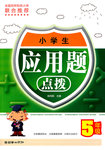题目内容
假定英语课上老师要求同桌之间交换修改作文,请你修改你同桌写的以下作文,文中共有10处语言错误,每句中最多有两处。每处错误仅涉及一个单词的增加、删除或修改。增加在缺词处加一个漏字符号(∧),并在其下面写出该加的词。删除把多余的词用斜线(\)划掉。修改在错的词下划一横线,并在该词下面写出修改后的词。
注意:l. 每处错误及其修改均仅限一词;
2. 只允许修改10处,多者(从第11处起)不计分。
As far as I know, time is not always enough all of us. So first of all, you need to arrange your time well. You’d better to make a long-term study plan to take up his weak subjects. And an short-term plan is equal necessary, if not more important. You have to make sure that you need to do each day, each class or even each minute. At the same time, it’s quite essential to keeping healthy. So take exercise for at least one hour and sleep for no less than seven hour a day. And don’t forget to eat well. More fruit was always right for you.
1.enough 后加for
2. better后去to
3.his 改为your
4.and 后的an改为a
5. equal改为equally
6. that 改为what
7. or 改为and
8. keeping改为keep
9. hour改hours
10.was改为is
【解析】
1. 后加for 考查固定句型。Sth is enough for sb某物对某人来说是足够的。
2.better后去to 考查固定句型。Had better do 最好做某事。
3.his 改为your 考查代词。句意:你最好制定一个长期的计划来弥补你的弱科。
4.and 后的an改为a 考查冠词。 句意:一个长期的计划是非常必需的。Short 是非元音,故用a
5.equal改为equally 考查副词。句意:一个长期的计划是非常必需的。Equally用来修饰形容词necessary.
6.that 改为what 考查宾语从句引导词。句意:你不得不确定每天你需要做什么。What引导make sure的宾语从句。
7.or 改为and 考查连接词。你不得不确定每天,每堂课和甚至每分钟需要做什么。
8.keeping改为keep 考查非谓语动词。It is adj to do sth 这个句型中it 是形式主语,真正的主语是不定式。
9.hour改hours 考查名词的单复数。七小时seven hours.
10.was改为is 考查主谓一致。句意:多吃水果更有利于你。水果是不可数名词,谓语用第三人称单数 。
考点:短文改错。

 精英口算卡系列答案
精英口算卡系列答案 应用题点拨系列答案
应用题点拨系列答案